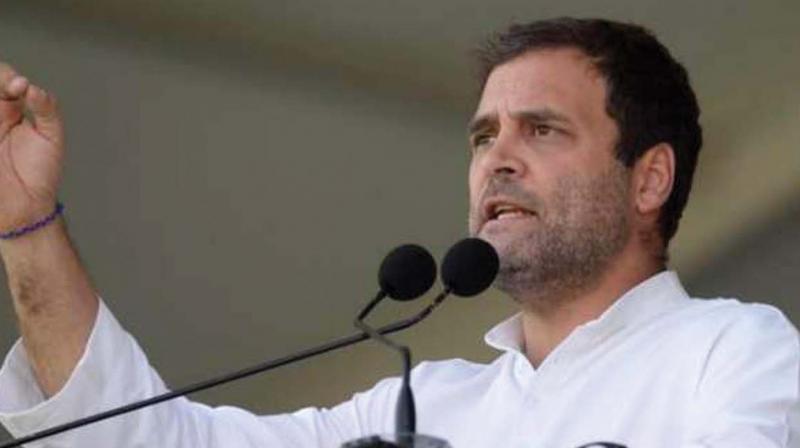Congress’ charter is a forward-looking one

Election manifestos are usually seen as a compilation of promises that a party thinks will go down well with the electorate and will, in due, course, be forgotten — other than outlandish ones like transferring Rs 15 lakhs to the bank account of every Indian, which citizens recall with malicious delight.
However, the Congress Party’s plan of governmental action, released by its president Rahul Gandhi on Tuesday, does not bear the stamp of wild imaginings, although it is clear aspects of it will draw discussion, debate and disagreements, such as the party’s flagship minimum income programme Nyay, which was publicised separately and raised appropriate questions. The crucial point raised about Nyay was that we do not generate incomes data, and that will make it tricky to identify households to which the promised Rs 6,000 per month is to be directly transferred to keep it above the poverty level. Nevertheless, data can be derived from other sets as an indication, and there is likely to be some goof-ups, inefficiency and exploitation of opportunity.
The other programmes outlined in the manifesto do not quite appear to suffer from “welfarism”, a dreaded word in these strictly market-oriented times. The details of generating employment on a substantial basis — at the Centre and in the states — appear linked to a significant expansion of the manufacturing sector and other job-generating sectors like infrastructure.
A positive feature of the manifesto is the promise to have an annual statement on its implementation. This makes for openness, and the party will find it difficult to hide behind excuses if elected to office.
The Congress promises to raise health spending to three per cent of GDP. This is a frontier long waiting to be conquered. Similarly, the commitment to raise the budgetary spend on defence in order to arrest the trend of declining expenditures is an imperative that could not have been postponed too long without badly hurting national security, given the adverse regional environment in the context of the China-Pakistan coordination.
The party promises to have a new ministry each for industry, services and employment as well as another for farmers. This is an innovation aimed at linking employment to economic expansion, and relieving farm distress through reshaping the agricultural ecosystem in the country.
Making defamation a civil offence, rather than a criminal offence as at present, and scrapping the sedition law are in line with modernity. Experience shows these have been used against journalists, intellectuals and those exercising freedom of expression on the social media in criticising the authorities. The sedition law, brought by colonial Britain, has long been dropped in modern-day Britain and there is no reason to persist with it. The AFSPA will not be repealed, but modified to find a balance between security needs and human rights. This is positive and in line with judicial pronouncements. On the whole, the manifesto seems a forward-looking document.

